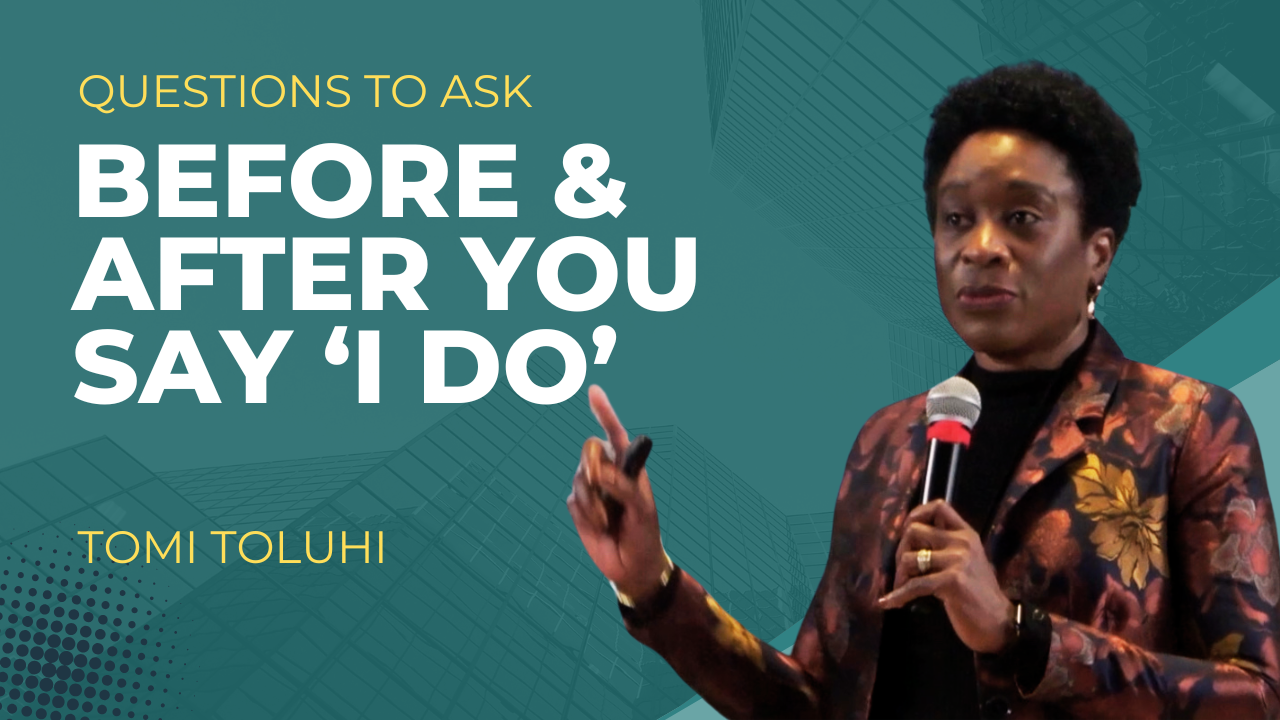Preparing your children for 21st Century living

Parenting is one of the most challenging jobs in the world but it is also one of the most rewarding. In this post we continue our series on raising children who are future-ready. If you have not yet done so, you will benefit from reading my previous post ‘Raising future-proof children’ where I shared the first six practices for raising children effectively. Here are the next six tips.
Prepare them for independence
Don’t send your children out into the world without life skills. Teach them to cook. Teach them to clean up after themselves. Teach them to manage money. The latter is particularly important and is one of the life skills we often neglect to pass on to our children. Financial illiteracy holds many people back early in life. Many adults admit that they would have been in a better place financially as young adults if their parents taught them early to tithe, give and also to save and invest. If your children leave home without financial skills, they will very quickly dig themselves into a hole which you may have to bail them out of. Opening savings accounts for your children when they are very young is an excellent practice which is highly recommended but we must also recognise that this is only half of the equation. It does nothing to impart financial skills to your children as they don’t manage the account themselves. You may wish to start by giving them small amounts of weekly pocket money and showing them how to tithe and save off that. Don’t automatically give them everything they want. Teach them to save for things that are within reach of their allowances. As they grow older, trust them to do some of the home shopping for essentials and require that they report back to you how much they spent, and promptly return the change. This teaches them financial accountability. When our first daughter turned 16, her birthday gift was some money, a trip to the bank to open her personal current and savings accounts, and a book on financial management written for teens which explained the principles of saving and investing and the dangers of debt. She has now had a lot of practice managing her personal finances so as she heads off to university this year, we are at peace that she is equipped to make sound financial decisions.
Listen, listen, listen
St Francis of Assisi famously said, ‘ Seek first to understand, then to be understood.’
Nowhere in the world does this matter more than in family life. Don’t unconsciously treat your children like an inconvenience. Be available to them, not just in body but also in mind and spirit. Give them focussed time. I am one of those people who is constantly on the move from the moment my eyes pop open in the morning to the time I hit my bed at night, but I have discovered the benefit of interrupting what I am doing at a particular moment to actually connect with my daughters when they want to share with me about their day or a challenge they have had in school. This communicates that I value them, much more than anything material I can ever give them. We all lead very busy lives; nevertheless we must understand that we have a window of opportunity to enter into our child’s world. If we miss that opportunity we will not be able to recapture those years when they are gone. If you want your children to be close to you when they leave home, the foundation must be laid while they’re still at home. If you’re not there for your children when they are young, don’t expect them to be there for you when you are old.
Treat them with respect
The way we speak to and treat our children shapes their view of what to expect from the outside world. We raise respectful children by modelling respect ourselves. If we expect our children to give us respect, we should be prepared to do the same for them. If we expect them to be polite, we should be polite in our dealings with them. My husband and I expect our children to say ‘Please’
and ‘Thank you’
to us so we do the same for them. Respect begets respect. Also, when you’re wrong, apologise to your children. You will not always get it right but children are very forgiving when you’re honest with them. Don’t pretend you’re infallible. If you want your children to demonstrate humility you need to model it for them. You will not always get it right with your parenting. Godly parenting is not a call to perfection. Great parents are not made in heaven; they are shaped on earth through the process of learning. I believe all first-born children deserve a special star in heaven because they are essentially the subject of experimental parenting! We get better at it second time around if we do have more children. We should expect to make some mistakes as we raise our children; that’s part of being human. As long as we acknowledge our mistakes to our children, we will retain their respect in the long term.
Accentuate the positives
Some parents specialise in catching their children out when they do wrong. This breeds an atmosphere of negativity and fear in a home. You are not perfect so don’t expect your children to be. Don’t give all the airtime in your home to pointing out your children’s faults or mistakes otherwise they will begin to avoid you. Don’t just catch them doing wrong, catch them doing right. Praise them sincerely when they do right. Highlight their strengths frequently, helping them see how gifted they are and how blessed you are to have them. The more specific you are about your praise, the more memorable it will be to your children. ‘You are such a good boy’
is nowhere near as effective as ‘I like the way you helped your little sister with her shoes just now; you are such a caring big brother’. The amazing thing is that your children never outgrow your praise. Even when we are adults, it is profoundly satisfying when our parents communicate that they are proud of us. The way you parent your children will go a long way in shaping their view of God as a Father. If you focus on the negatives they will believe that God is up there looking to catch them doing wrong as well. Be a good representative of God in your child’s life. We all respond better to praise than to criticism so even when you need to give your children negative feedback, sandwich it with some genuine praise. It makes it more palatable.
Discipline with love
Discipline is crucial in raising balanced children. We live in a world of consequences so our children need to learn that there is a reward or a cost for everything they do in life. When they are taught to obey authority when they are young, they will not struggle to respond appropriately to teachers, employers and other authority figures as they grow older. Nevertheless, we must show grace, even when we need to discipline them. The purpose of discipline is correction, not punishment, so even when you correct your children temper it with love. God exhorts us not to be harsh with our children. Harshness results when we discipline our children out of anger rather than love. The aim of God’s discipline is to shape the will, not to break the spirit. The same should apply to how we discipline our children.
Train them, then trust them
Expect your children to be responsible and they will rise to the occasion. Show them that you trust them and they will not want to disappoint you. You cannot monitor your children 24/7 but when you have given them principles to live by, let them know that you trust them to uphold those principles. Trust does not mean that you don’t verify that they have done what is required; it simply means that you always expect the best from them rather than anticipating the worst. Your belief in your children will be a powerful force that propels them towards excellence in life. Finally, as parents we can draw strength from God’s promise in Proverbs 22:6, ‘Start children off on the way they should go, and even when they are old they will not turn from it.’
Do your part with your children and trust God to do what you can’t do. Once you have laid down godly principles for them to live by and invested in your relationship with them, believe that even if they are ever tempted to stray from that path, they will return.
I would like to close on a personal note by sharing one of my most precious moments as a Mum. A few months ago, my eldest daughter Oyin came up to me out of the blue, hugged me and said, ‘You’re such an amazing Mum. I just want you to know that if anything ever goes wrong with me, it won’t be your fault. I feel like you’ve done everything perfectly and it’s all on me now.’ My typical-parent response was, ‘Just make sure nothing goes wrong, but that was so sweet!’ I know for a fact that I’m very far from perfect but I was so blessed by her words. In that moment I had flashbacks of diapers and potty training; learning to walk and learning to read; parents’ evenings and school presentations; showing her how to pray and to develop a personal devotion time; teaching her to cook and hounding her to clean her room. I remembered times when I scolded her and regretted it. Moments when I could have paid her more attention and didn’t. Missed opportunities and misunderstood intentions. In the final analysis all that matters is that it is wrapped in love and much prayer. Whatever you’re doing for your children, keep doing it as best you know how. Your sacrifices will be rewarded.
What are your own tips for raising children? Leave me a comment on Facebook as an encouragement to others.










